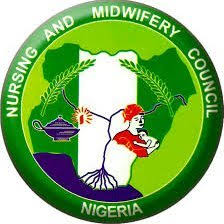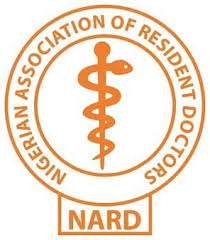Most times the public seems to be confused about the roles/aims of Nursing and Midwifery Council of Nigeria (NMCN) and National Association of Nigeria Nurses and Midwives (NANNM) as both organisations are mainly concerned with nurses in Nigeria, as a result this article will give highlights on the various roles/aims of these organisations to ascertain what they are and what they are not. In this article, the definition and roles/functions of NMCN and NANNM will be reviewed.
Definitions: The Nursing and Midwifery Council of Nigeria known as "The Council" is the only professional Council for all grades and Cadres of Nurses and Midwives. It is the only legal and administrative, corporate and statutory body charged with specific functions to perform on behalf of the Federal Government of Nigeria to ensure the delivery of safe and effective Nursing and Midwifery care to the public. The National Association of Nigeria Nurses and Midwives (NANNM) is a professional-cum trade union organization recognized by the Trade Unions (Amendment) Act of 2005. It is a non-governmental and non-profit organization authorized to organize all professional nurses and midwives who are trained, registered and licensed to practice Nursing Profession at all the levels of healthcare delivery system, namely primary, secondary and tertiary both in public and private sectors in Nigeria.
From the above definitions, these organisations have their similarities and differences summarized. The NMCN is owned by the federal government for the sole purpose of ensuring safe and effective nursing and midwifery care that is rendered to the public while NANNM is a professional and also a trade union, owned by nurses and for nurses with the sole aim of organizing all nurses so they can have a voice. The common ground remains organizing nurses.
Aims/functions: The primary objectives of the Nursing and Midwifery Council of Nigeria are to ensure high quality of Nursing and Midwifery education in Nigeria, maintain high standard of professional nursing and midwifery practice and enforce discipline within the profession.
Broadly, the Council’s functions are related to those of designing, implementing and evaluating various nursing and midwifery educational programmes, of indexing, examination, registration, certification, licensure of professional nurses and midwives and monitoring standards of nursing and midwifery practice in the Country.
Specifically, the Council’s functions are as follows:
- Index all categories of nursing and midwifery students on commencement of their training.
- Develop and review periodically, the different curricula utilized for the education of all categories of Nurses and Midwives.
- Co-operate with recognized bodies interested in conducting new schemes for Basic and Post Basic Education of Nurses and Midwives such as: National Universities Commission, World Health Organization, etc.
- Accredit all training institutions and clinical practice areas utilized for the education of all categories of Nurses and Midwives in Nigeria.
- Conduct Professional Examinations for all categories of Nurses and Midwives in Nigeria.
- Establish and maintain Registers of all persons qualified to practice the discipline of Nursing and Midwifery in Nigeria.
- Conduct Registration interviews for Nurses and Midwives trained outside Nigeria who are seeking to practice in Nigeria.
- Issue and update Professional Practicing Licenses every three years to all cadres of qualified Nurses and Midwives.
- Issue Professional Certificates to all cadres of Nurses and Midwives at the end of their training.
- Revoke and/or Restore Professional Certificates as applicable.
- Determine and maintain standards of knowledge and competencies in Nursing and Midwifery Education and Practice in Nigeria.
- Organize and Conduct Mandatory Continuing Professional and Educational Development Programmes for all cadres of Nurses and Midwives.
- Conduct and Promote Research in relevant areas of Nursing and Midwifery.
- Maintain discipline within the Nursing and Midwifery profession in Nigeria through the Nurses and Midwives Tribunal.
- Prosecute illegal Training Institutions.
- Regulate and control the practice of Nursing and Midwifery in all its ramifications.
On the other hand NANNM tends to bring about positive change required in making nursing profession more responsive to the healthcare needs of individuals and community. It tends to protect the interest of members before the contemporary professions, employers and the public at large. The specific aims and objectives of NANNM are as follows;
- To organize all registered nurses who are qualified for membership (nurses registered with NMCN).
- To provide a forum or avenue where nurses speak with one voice
- To set and improve the standard of services which the nurses give to the general public
- To improve nursing education at all levels throughout the federation.
- To participate in planning, policy-making, and administration of health care delivery services at all levels of government.
- To provide a forum whereby understanding, fellowship and unity can be achieved and maintained at all times amongst all members of the nursing profession.
- To raise the status of the profession, obtain just and proper remuneration, hours of work and other conditions/schemes of service that will enhance the dignity of the profession and generally protect the professional and socio-economic interests of members.
- To extend protection; legal or otherwise to members of the association where established and when connected with the employment/practice of its members.
- To seek the interest and act as guardian to other groups within the nursing profession such as the student nurses and midwives.
- To uphold the international code of nursing ethics and position statements as enunciated by the international council of nurses (ICN) as well as World Health Organization (WHO) as they affect nursing practice.
- To affiliate with the Nigeria Labour Congress (NLC) and/or fraternize with any other relevant international professional organizations with similar aims and objectives.
- To establish and maintain good relationship with the members of the public, other professions, trade unions, employers and nurses and all the governments of Nigeria.
- To establish and maintain good relationship with nursing colleagues in Africa, commonwealth and other parts of the world.
- To operate benefit schemes for the members as may be decided by the National Executive Council from time to time.
From the above review, the roles/aims of these organisations can give a clearer view to the services that can be sort for from each of these organisations. This will help the general public to identify where to channel their issues, challenges and complaints when the need arises.
Comrade Nwoye, C. A (Nrs)
State Secretary
National Association of Nigeria Nurses and Midwives
Anambra State Council




